World War I classic novel debuts on screens in native German language
Erich Maria Remarque’s novel All Quiet on the Western Front, was brought to life on Netflix in its original language, German, and is nominated for nine Academy Awards. While sometimes marketed as war novel, many see it as an anti-war story that depicts the horrors of war, thus advocating for peace.
February 28, 2023
For the majority of human history, war has been an honor to fight in, and a glory to die for. Yet the First World War transformed the world’s perception of war forever. In All Quiet on the Western Front, German author Erich Maria Remarque captures the essence of the post-war era.
The novel, borne out of Remarque’s own experiences on the battlefield, made its first screen debut in German this past October on Netflix.
All Quiet on the Western Front is currently nominated in nine different categories at this year’s Academy Awards, and is currently tied for the second-highest number of nominations received by a non-English film ever.
The film starts off on the day of 17-year-old Paul Bäumer’s graduation. Goaded into forging his parents’ signatures on the army recruitment form by his friends, Bäumer and his naive friends enlist in the German Army, filled with the anticipation that they “will, in a few short weeks, finally march on Paris,” and bring honor to the “Kaiser, God, and the Fatherland.” Yet within hours of embarking to the Western Front, this spell is broken by the death of one of his friends, and the horrors of war quickly set in for the young Paul.
Like the 1930 adaptation, the 2022 remake had riveting cinematography. When Paul emerges over the edge of the trench, eyes scouring the fog for the enemy, you hold your breath and pray he doesn’t get shot. The costumes and set looked very accurate as well, taking the audience from the comfort of their couches to the nightmare that was the Western Front.
However, from there out, the film diverges from the 1930 version. At times, it felt like this classic anti-war film lost some of its original message. Many of the fighting scenes portray the horror of war as a spectacle. When the Allied troops come in with their tanks and mustard gas, it feels more like a scene out of an action flick than a poignant reflection on the horrors of war.
The soundtrack also felt inappropriate at times, with the drum beats spoiling the somber tone that the book and film adaptations that have preceded the 2022 version were known for. I felt that they foreshadowed too much of the movie, taking away from the nervous anticipation that the soldiers in the trenches must have felt. While this approach works for movies like the Star Wars franchise, it detracts from the gravity that other versions of the film have commanded.
In addition, I felt that not enough time was spent lingering in the aftermath of the atrocities Paul and his fellow soldier’s face. While the gory action scenes do serve to show the grisly reality of what the soldiers faced, the film does not follow up these scenes with enough on how the soldiers react to not only what they have faced, but also what they have done. This was the film’s biggest flaw. The film is meant to be an anti-war film. To me, it should have focused more on the effects that combat has on the human soul, rather than on brawls and battles.
Despite this, some changes felt true to the book’s message.The remake introduced new storylines to the movie, switching from Paul’s perspective at the war front to Mattias Erzberger, the German official sent to negotiate the terms of the armistice between the Allies and Central Powers and to the perspective of the general leading Paul’s regiment.
It felt sickening to see the commanders in the midst of an opulent, candle-lit dinner naively yearn for the energy of their youth to experience the war firsthand while young soldiers were huddled in the trenches, caked with mud, anxiously awaiting the enemy’s next move. I felt that these starkly contrasting scenes were the most powerful of all. They highlight the absurdity that war has always been based on the whims of those in power, who would rather sacrifice thousands of men than suffer a blow to their pride.
The most profound part of the film, however, was the ending. In this remake, Paul and his regiment are commanded by their general to lead one last charge against the French. With just 15 minutes to go until the armistice comes into effect, Paul goes on a rampage, killing as many French soldiers as he can, his once innocent eyes devoid of the tenderness he had at the start of the film.
In that moment, it becomes clear that the sacrifices of the men were all in vain. Many died for nothing but a few feet of dirt that would never even belong to their countrymen. This ending also reminds viewers that behind the facade of every battle-hardened soldier is a real person.
As much as many in charge would rather us believe that casualties are just statistics, behind each death lie families in ruins. In the end, despite the flaws, this film’s message holds true. In times as fraught as these, it would do mankind well to never forget this story of the war that ended all others.


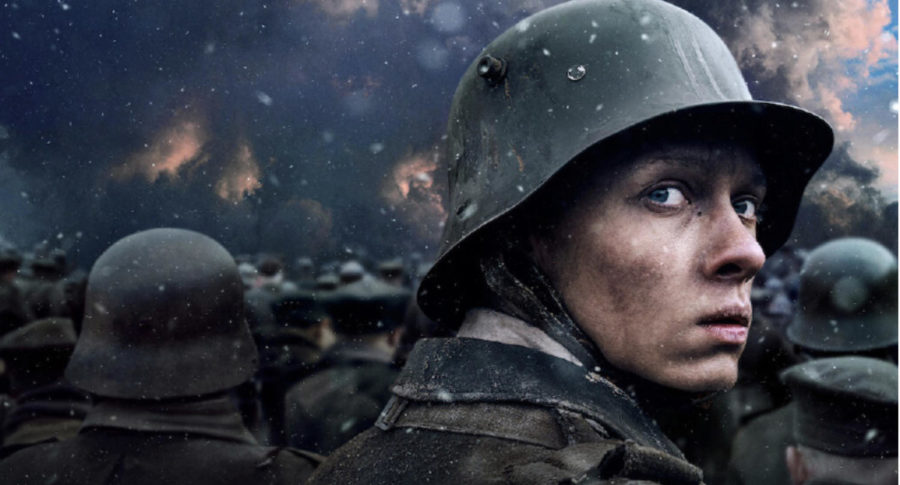

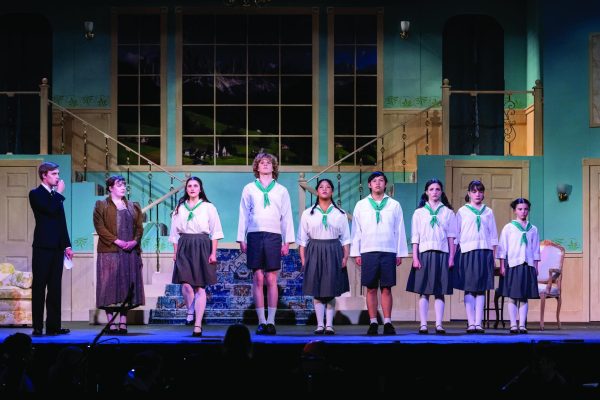
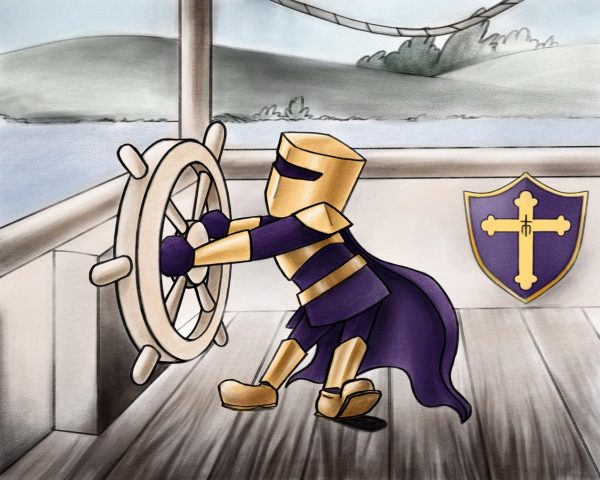
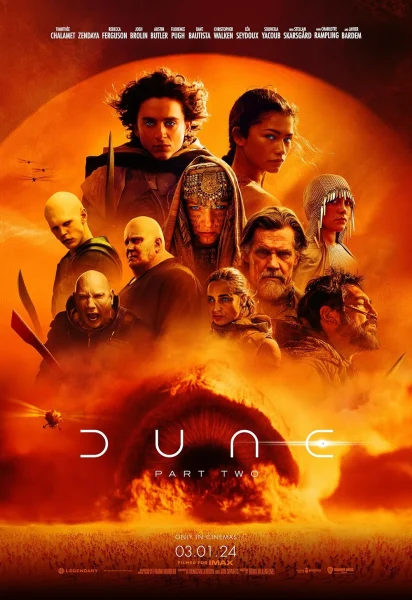


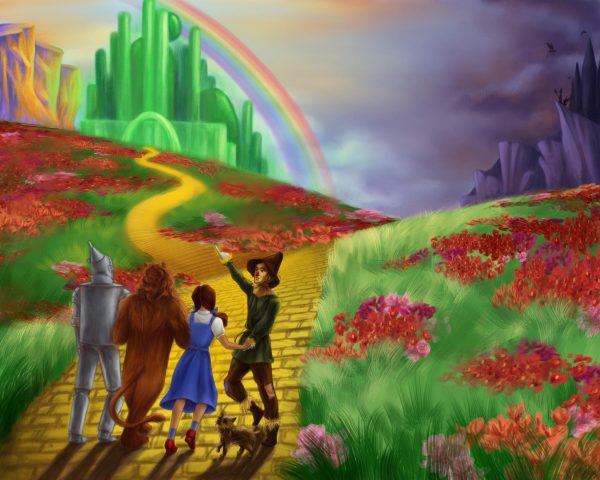



Jacques Mathias • Apr 4, 2023 at 9:45 am
In depth analysis of both the original text & its adaptation for the cinema resulting in very pertinent critic.